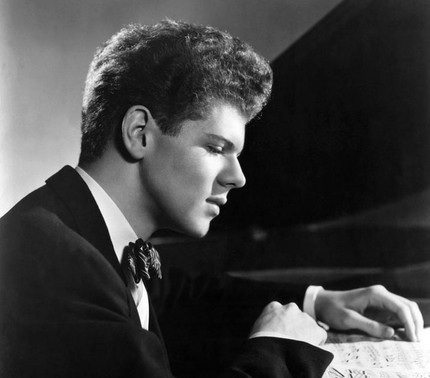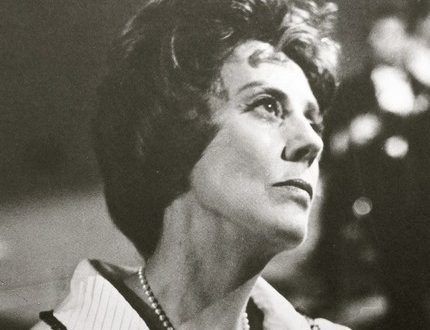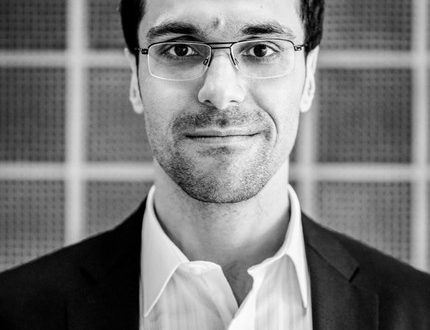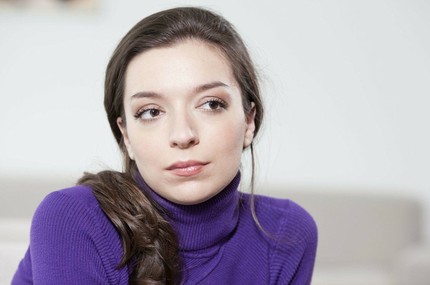
Van Cliburn |
From Cliburn

Harvey Levan Cliburn (Clyburn) was born in 1934 in the small town of Shreveport, in the southern United States in Louisiana. His father was a petroleum engineer, so the family moved frequently from place to place. Harvey Levan’s childhood passed in the extreme south of the country, in Texas, where the family moved shortly after his birth.
Already by the age of four, the boy, whose abbreviated name was Van, began to demonstrate his musical abilities. The unique giftedness of the boy was drawn by his mother, Rildia Cliburn. She was a pianist, a student of Arthur Friedheim, a German pianist, teacher, who was F. Liszt. However, after her marriage, she did not perform and devoted her life to teaching music.
After just a year, he already knew how to read fluently from a sheet and from the student’s repertoire (Czerny, Clementi, St. Geller, etc.) moved on to the study of the classics. Just at that time, an event occurred that left an indelible mark on his memory: in Cliburn’s hometown of Shreveport, the great Rachmaninoff gave one of his last concerts in his life. Since then, he has forever become the idol of the young musician.
A few more years passed, and the famous pianist José Iturbi heard the boy play. He approved of his mother’s pedagogical method and advised him not to change teachers for longer.
Meanwhile, the young Cliburn was making significant progress. In 1947, he won a piano competition in Texas and won the right to play with the Houston Orchestra.
For the young pianist, this success was very important, because only on the stage he was able to realize himself as a real musician for the first time. However, the young man failed to immediately continue his musical education. He studied so much and diligently that he undermined his health, so his studies had to be postponed for some time.
Only a year later, the doctors allowed Cliburn to continue his studies, and he went to New York to enter the Juilliard School of Music. The choice of this educational institution turned out to be quite conscious. The founder of the school, the American industrialist A. Juilliard, established several scholarships that were awarded to the most talented students.
Cliburn brilliantly passed the entrance exams and was accepted into the class led by the famous pianist Rosina Levina, a graduate of the Moscow Conservatory, which she graduated almost simultaneously with Rachmaninov.
Levina not only improved Cliburn’s technique, but also expanded his repertoire. Wang developed into a pianist who excelled at capturing features as diverse as Bach’s preludes and fugues and Prokofiev’s piano sonatas.
However, neither outstanding abilities, nor a first-class diploma received at the end of school, yet guaranteed a brilliant career. Cliburn felt this immediately after leaving school. In order to gain a strong position in musical circles, he begins to systematically perform at various music competitions.
The most prestigious was the award that he won at a very representative competition named after E. Leventritt in 1954. It was the competition that aroused the increased interest of the musical community. First of all, this was due to the authoritative and strict jury.
“In the course of a week,” critic Chaysins wrote after the competition, “we heard some bright talents and many outstanding interpretations, but when Wang finished playing, no one had any doubts about the name of the winner.”
After a brilliant performance in the final round of the competition, Cliburn received the right to give a concert in the largest concert hall in America – Carnegie Hall. His concert was a great success and brought the pianist a number of lucrative contracts. However, for three years, Wang tried in vain to get a permanent contract to perform. On top of that, his mother suddenly fell seriously ill, and Cliburn had to replace her, becoming a music school teacher.
The year 1957 has come. As usual, Wang had little money and many hopes. No concert company offered him any more contracts. It seemed that the pianist’s career was over. Everything changed Levina’s phone call. She informed Cliburn that it was decided to hold an international competition of musicians in Moscow, and said that he should go there. In addition, she offered her services in its preparation. In order to get the money necessary for the trip, Levina turned to the Rockefeller Foundation, which provided Cliburn with a nominal scholarship to travel to Moscow.
True, the pianist himself tells about these events in a different way: “I first heard about the Tchaikovsky Competition from Alexander Greiner, the Steinway impresario. He received a brochure with the terms of the competition and wrote me a letter to Texas, where my family lived. Then he called and said: “You have to do it!” I was immediately captivated by the idea of going to Moscow, because I really wanted to see St. Basil’s Church. It has been a lifelong dream of mine since I was six years old when my parents gave me a children’s history picture book. There were two pictures that gave me great excitement: one – St. Basil’s Church, and the other – the London Parliament with Big Ben. I so passionately wanted to see them with my own eyes that I asked my parents: “Will you take me there with you?” They, not attaching importance to children’s conversations, agreed. So, I first flew to Prague, and from Prague to Moscow on a Soviet jet liner Tu-104. We didn’t have passenger jets in the United States at the time, so it was just an exciting journey. We arrived late in the evening, about ten o’clock. The ground was covered with snow and everything looked very romantic. Everything was as I dreamed. I was greeted by a very nice woman from the Ministry of Culture. I asked: “Is it not possible to pass St. Basil the Blessed on the way to the hotel?” She replied: “Of course you can!” In a word, we went there. And when I ended up on Red Square, I felt that my heart was about to stop from excitement. The main goal of my journey has already been achieved … ”
The Tchaikovsky Competition was a turning point in Cliburn’s biography. The whole life of this artist was divided into two parts: the first, spent in obscurity, and the second – the time of world fame, which was brought to him by the Soviet capital.
Cliburn was already a success in the first rounds of the competition. But only after his performance with Tchaikovsky and Rachmaninov concerts in the third round, it became clear what a huge talent lies in the young musician.
The jury’s decision was unanimous. Van Cliburn was awarded first place. At the solemn meeting, D. Shostakovich presented medals and prizes to the laureates.
The greatest masters of Soviet and foreign art appeared these days in the press with rave reviews from the American pianist.
“Van Clyburn, a twenty-three-year-old American pianist, has shown himself to be a great artist, a musician of rare talent and truly unlimited possibilities,” E. Gilels wrote. “This is an exceptionally gifted musician, whose art attracts with deep content, technical freedom, a harmonious combination of all the qualities inherent in the greatest piano artists,” said P. Vladigerov. “I consider Van Clyburn a brilliantly gifted pianist… His victory in such a difficult competition can rightly be called brilliant,” said S. Richter.
And here is what the remarkable pianist and teacher G. G. Neuhaus wrote: “So, naivety conquers first of all the hearts of millions of Van Cliburn listeners. To it must be added everything that can be seen with the naked eye, or rather, heard with the naked ear in his playing: expressiveness, cordiality, grandiose pianistic skill, ultimate power, as well as the softness and sincerity of the sound, the ability to reincarnate, however, has not yet reached its limit ( probably due to his youth), wide breathing, “close-up”. His music-making does not allow him ever (unlike many young pianists) to take exaggeratedly fast tempos, to “drive” a piece. The clarity and plasticity of the phrase, the excellent polyphony, the sense of the whole – one cannot count everything that pleases in Cliburn’s playing. It seems to me (and I think that this is not only my personal feeling) that he is a real bright follower of Rachmaninov, who from childhood experienced all the charm and truly demonic influence of the great Russian pianist’s playing.
The triumph of Cliburn in Moscow, at the first in the history of the International Competition. Tchaikovsky as a thunder struck American music lovers and professionals, who could only complain about their own deafness and blindness. “The Russians didn’t discover Van Cliburn,” Chisins wrote in The Reporter magazine. “They only enthusiastically accepted what we as a nation look on with indifference, what their people appreciate, but ours ignore.”
Yes, the art of the young American pianist, a pupil of the Russian piano school, turned out to be unusually close, consonant with the hearts of Soviet listeners with its sincerity and spontaneity, breadth of phrasing, power and penetrating expressiveness, melodious sound. Cliburn became a favorite of Muscovites, and then of listeners in other cities of the country. The echo of his competitive victory in the blink of an eye spread around the world, reached his homeland. Literally in a matter of hours, he became famous. When the pianist returned to New York, he was greeted as a national hero…
The following years became for Van Cliburn a chain of continuous concert performances around the world, endless triumphs, but at the same time a time of severe trials. As one critic noted back in 1965, “Van Cliburn faces the almost impossible task of keeping up with his own fame.” This struggle with oneself has not always been successful. The geography of his concert trips expanded, and Cliburn lived in constant tension. Once he gave more than 150 concerts in a year!
The young pianist depended on the concert situation and had to constantly confirm his right to the fame he had achieved. His performance possibilities were artificially limited. In essence, he became a slave to his glory. Two feelings struggled in the musician: the fear of losing his place in the concert world and the desire for improvement, associated with the need for solitary studies.
Feeling the symptoms of a decline in his art, Cliburn completes his concert activity. He returns with his mother to permanent residence in his native Texas. The city of Fort Worth soon becomes famous for the Van Cliburn Music Competition.
Only in December 1987, Cliburn again gave a concert during the visit of Soviet President M. Gorbachev to America. Then Cliburn made another tour in the USSR, where he performed with several concerts.
At that time, Yampolskaya wrote about him: “In addition to the indispensable participation in the preparation of competitions and the organization of concerts named after him in Fort Worth and other cities of Texas, helping the music department of Christian University, he devotes a lot of time to his great musical passion – opera: he thoroughly studies it and promotes opera performance in the United States.
Clyburn is diligently engaged in composing music. Now these are no longer unpretentious plays, like “A Sad Remembrance”: he turns to large forms, develops his own individual style. A piano sonata and other compositions have been completed, which Clyburn, however, is in no hurry to publish.
Every day he reads a lot: among his book addictions are Leo Tolstoy, Dostoevsky, poems by Soviet and American poets, books on history, philosophy.
The results of long-term creative self-isolation are ambiguous.
Outwardly, Clyburn’s life is devoid of drama. There are no obstacles, no overcomings, but there is also no variety of impressions necessary for the artist. The daily flow of his life is narrowed. Between him and the people stands the businesslike Rodzinsky, who regulates mail, communication, communications. Few friends enter the house. Clyburn does not have a family, children, and nothing can replace them. Closeness to himself deprives Clyburn of his former idealism, reckless responsiveness and, as a result, cannot but be reflected in moral authority.
The man is alone. Just as lonely as the brilliant chess player Robert Fischer, who at the height of his fame gave up his brilliant sports career. Apparently, there is something in the very atmosphere of American life that encourages creators to go into self-isolation as a form of self-preservation.
On the thirtieth anniversary of the First Tchaikovsky Competition, Van Cliburn greeted the Soviet people on television: “I often remember Moscow. I remember the suburbs. I love you…”
Few musicians in the history of the performing arts have experienced such a meteoric rise to fame as Van Cliburn. Books and articles, essays and poems were already written about him – when he was still 25 years old, an artist entering into life – books and articles, essays and poems were already written, his portraits were painted by artists and sculptors sculpted, he was covered with flowers and deafened with applause by thousands of thousands of listeners – sometimes very far from music. He became a true favorite in two countries at once – the Soviet Union, which opened him to the world, and then – only then – in his homeland, in the United States, from where he left as one of many unknown musicians and where he returned as a national hero.
All these miraculous transformations of Van Cliburn — as well as his transformation into Van Cliburn at the behest of his Russian admirers — are fresh enough in the memory and recorded in sufficient detail in the annals of musical life to return to them again. Therefore, we will not try here to resurrect in the memory of readers that incomparable excitement that caused Cliburn’s first appearances on the stage of the Great Hall of the Conservatory, that indescribable charm with which he played in those competition days the First Concerto of Tchaikovsky and the Third Rachmaninov, that feeling joyful enthusiasm with which everyone greeted the news of his awarding the highest prize … Our task is more modest – to recall the main outline of the artist’s biography, sometimes lost in the stream of legends and delights surrounding his name, and to try to determine what place he occupies in the pianistic hierarchy of our days, when about three decades have passed since his first triumphs – a very significant period.
First of all, it should be emphasized that the beginning of Cliburn’s biography was far from being as happy as that of many of his American colleagues. While the brightest of them were already famous by the age of 25, Cliburn barely kept on the “concert surface”.
He received his first piano lessons at the age of 4 from his mother, and then became a student at the Juilliard School in the class of Rosina Levina (since 1951). But even before that, Wang emerged as the winner of the Texas State Piano Competition and made his public debut as a 13-year-old with the Houston Symphony Orchestra. In 1954, he had already completed his studies and was honored to play with the New York Philharmonic Orchestra. Then the young artist gave concerts around the country for four years, although not without success, but without “making a sensation”, and without this it is difficult to count on fame in America. The victories at numerous competitions of local importance, which he easily won in the mid-50s, did not bring her either. Even the Leventritt Prize, which he won in 1954, was by no means a guarantee of progress at that time – it gained “weight” only in the next decade. (True, the well-known critic I. Kolodin called him then “the most talented newcomer on the stage,” but this did not add contracts to the artist.) In a word, Cliburn was by no means a leader in the large American delegation at the Tchaikovsky Competition, and therefore what happened in Moscow did not only amazed, but also surprised the Americans. This is evidenced by the phrase in the latest edition of Slonimsky’s authoritative musical dictionary: “He became unexpectedly famous by winning the Tchaikovsky Prize in Moscow in 1958, becoming the first American to win such a triumph in Russia, where he became the first favorite; on his return to New York he was greeted as a hero by a mass demonstration.” A reflection of this fame was soon the establishment in the artist’s homeland in the city of Fort Worth of the International Piano Competition named after him.
Much has been written about why Cliburn’s art turned out to be so in tune with the hearts of Soviet listeners. Rightly pointed out the best features of his art – sincerity and spontaneity, combined with the power and scale of the game, the penetrating expressiveness of phrasing and melodiousness of sound – in a word, all those features that make his art related to the traditions of the Russian school (one of the representatives of which was R. Levin). The enumeration of these advantages could be continued, but it would be more expedient to refer the reader to the detailed works of S. Khentova and the book by A. Chesins and V. Stiles, as well as to numerous articles about the pianist. Here it is important to emphasize only that Cliburn undoubtedly possessed all these qualities even before the Moscow competition. And if at that time he did not receive worthy recognition in his homeland, then it is unlikely, as some journalists do “on a hot hand”, this can be explained by the “misunderstanding” or “unpreparedness” of the American audience for the perception of just such talent. No, the public that heard – and appreciated – the play of Rachmaninov, Levin, Horowitz and other representatives of the Russian school, of course, would also appreciate Cliburn’s talent. But, firstly, as we have already said, this required an element of sensation, which played the role of a kind of catalyst, and secondly, this talent was truly revealed only in Moscow. And the last circumstance is perhaps the most convincing refutation of the assertion often made now that a bright musical individuality hinders success in performing competitions, that the latter are created only for “average” pianists. On the contrary, it was just the case when the individuality, unable to reveal itself to the end in the “conveyor line” of everyday concert life, flourished under the special conditions of the competition.
So, Cliburn became the favorite of Soviet listeners, won world recognition as the winner of the competition in Moscow. At the same time, the fame gained so rapidly created certain problems: against its background, everyone with special attention and captiousness followed the further development of the artist, who, as one of the critics figuratively put it, had to “chase the shadow of his own glory” all the time. And it, this development, turned out to be not at all easy, and it is far from always possible to designate it with a straight ascending line. There were also moments of creative stagnation, and even retreat from the won positions, and not always successful attempts to expand his artistic role (in 1964, Cliburn tried to act as a conductor); there were also serious searches and undoubted achievements that allowed Van Cliburn to finally gain a foothold among the leading pianists of the world.
All these vicissitudes of his musical career were followed with special excitement, sympathy and predilection by Soviet music lovers, always looking forward to new meetings with the artist, his new records with impatience and joy. Cliburn returned to the USSR several times – in 1960, 1962, 1965, 1972. Each of these visits brought the listeners a genuine joy of communication with a huge, unfaded talent that retained its best features. Cliburn continued to captivate the audience with captivating expressiveness, lyrical penetration, elegiac soulfulness of the game, now combined with greater maturity of performing decisions and technical confidence.
These qualities would be quite enough to ensure outstanding success for any pianist. But perceptive observers did not escape the disturbing symptoms either – an undeniable loss of purely Cliburnian freshness, the primordial immediacy of the game, at the same time not compensated (as happens in the rarest cases) by the scale of performing concepts, or rather, by the depth and originality of the human personality, which the audience has the right to expect from mature performer. Hence the feeling that the artist is repeating himself, “playing Cliburn,” as musicologist and critic D. Rabinovich noted in his extremely detailed and instructive article “Van Cliburn – Van Cliburn”.
These same symptoms were felt in many of the recordings, often excellent, made by Cliburn over the years. Among such recordings are Beethoven’s Third Concerto and Sonatas (“Pathetique”, “Moonlight”, “Appassionata” and others), Liszt’s Second Concerto and Rachmaninoff’s Rhapsody on a Theme of Paganini, Grieg’s Concerto and Debussy’s Pieces, Chopin’s First Concerto and Sonatas, Second Concerto and solo pieces by Brahms, sonatas by Barber and Prokofiev, and finally, a disc called Van Cliburn’s Encores. It would seem that the artist’s repertoire range is very wide, but it turns out that most of these interpretations are “new editions” of his works, on which he worked during his studies.
The threat of creative stagnation facing Van Cliburn caused legitimate anxiety among his admirers. It was obviously felt by the artist himself, who in the early 70s significantly reduced the number of his concerts and devoted himself to in-depth improvement. And judging by the reports of the American press, his performances since 1975 indicate that the artist still does not stand still – his art has become larger, stricter, more conceptual. But in 1978, Cliburn, dissatisfied with another performance, again stopped his concert activity, leaving his many fans disappointed and confused.
Has the 52-year-old Cliburn come to terms with his premature canonization? — rhetorically asked in 1986 a columnist for the International Herald Tribune. — If we consider the length of the creative path of such pianists as Arthur Rubinstein and Vladimir Horowitz (who also had long pauses), then he is only in the middle of his career. What made him, the most famous American-born pianist, give up so early? Tired of music? Or maybe a solid bank account is so lulling to him? Or did he suddenly lose interest in fame and public acclaim? Frustrated with the tedious life of a touring virtuoso? Or is there some personal reason? Apparently, the answer lies in a combination of all these factors and some others unknown to us.”
The pianist himself prefers to remain silent on this score. In a recent interview, he admitted that he sometimes looks through new compositions that publishers send him, and constantly plays music, keeping his old repertoire at the ready. Thus, Cliburn indirectly made it clear that the day would come when he would return to the stage.
… This day came and became symbolic: in 1987, Cliburn went to a small stage in the White House, then the residence of President Reagan, to speak at a reception in honor of Mikhail Sergeyevich Gorbachev, who was in the United States. His game was full of inspiration, a nostalgic feeling of love for his second homeland – Russia. And this concert instilled new hope in the hearts of the artist’s admirers for a quick meeting with him.
References: Chesins A. Stiles V. The legend of Van Clyburn. – M., 1959; Khentova S. Van Clyburn. – M., 1959, 3rd ed., 1966.
Grigoriev L., Platek Ya., 1990





